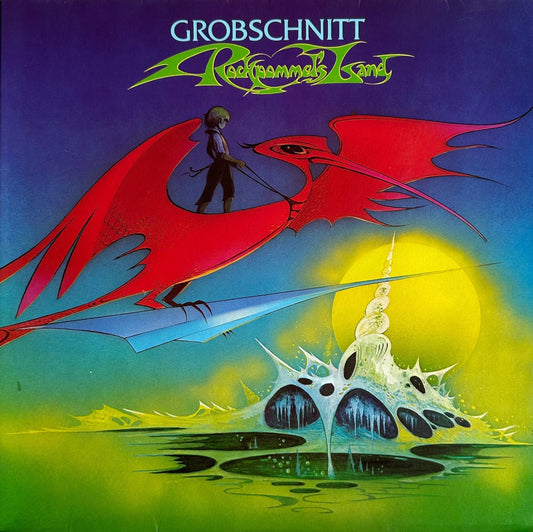Brendon and Eleanor had been sweethearts since high school. They got married, bought a house, and had three kids. He was a truly happy man and credited Eleanor for much of his bliss. They bought a motorhome to take the kids to the national parks and he was proud to do so.
Then his job was outsourced and his world turned upside down. He looked for another job but everyone else who worked at the furniture factory was doing the same thing, so there were none to be found. Those who left town to find jobs elsewhere didn’t have a mortgage or kids in school.
The motorhome was repossessed. If he didn’t find a job soon, the house would be too. He was devastated and distraught.
Many of his former work buddies spent their afternoons at the bar lamenting their fate, and soon he was there also. It felt good to share his tribulations with friends. Although it started out as lunchtime with the boys, it soon became an afternoon with the boys. When he started to spend his evenings there as well, Eleanor became increasingly agitated.
One day Brendon came home drunk and she lit into him like never before. That was too much for him. He lost it and punched her, but he struck her too hard and she died. That’s how Brendon ended up on my prison caseload.
Brendon presented as a pleasant, polite, considerate person, the kind anyone would enjoy as a neighbor or a friend. It was a shock to read his file.
He was required to see me once per week, but he often dropped in more frequently. On every occasion, he lamented the loss of his wife, sometimes crying uncontrollably. He was full of self-loathing. Every time one of his kids had a birthday, he’d be in my office to tell me how old they were and how distressed he was for not being able to watch them grow up. One time, he expressed his frustration by smashing his fist so hard into a concrete pillar that he broke several bones in his hand.
I related his story to a friend over lunch recently. He’s a psychology professor of Greek descent. He claimed that Brendon had been possessed by Ares, the Greek god of violence.
“Surely you jest, Dimitri,” I said, “A psychologist can’t believe that an ancient Greek god somehow inspired Brendon to kill his wife. That strains all credibility.”
“Only if you see the Greek gods as beings separate from ourselves,” he responded. “But if you see them as sub-personalities of the human psyche, you’ll understand that inside every one of us, there resides many different gods.
The ancients personified human impulses because it made them easier to understand. Rather than characterize a pleasant, responsible neighbor as evil, they'd attribute his behavior to an outside force. So, the Greeks might have said that Brendon had been temporarily possessed by Dionysus, the god of wine, and Ares, the god of aggression. Christians might use the term Satan.”
“I appreciate the need for Dionysus,” I asked, "but who needs Ares?”
Dimitri smiled, “Every successful athlete on the field. The same god that can make you a killer can make you a success in sports or business.”
“So Ares is a god that needs to be channeled. I suppose that’s the role of Zeus?”
“Exactly. Zeus is the ruler of the gods and he is in charge. He corresponds to the prefrontal cortex, the conscious part of the brain. He makes sure the sub-personalities in the subconscious brain behave in a context-dependent manner. So, while the aggression of Ares might be perfectly channeled onto the playing field, it’s totally out of place in social or domestic settings. Anti-social behavior is seen, therefore, as a person’s decision to allow a lesser god to overrule Zeus at an inappropriate time.”
“So Brendon allowed Ares to control him at the wrong time.”
“Exactly; this same impulse in a time of war might have won him a medal.”
“Interesting conceptualization.”
“Sociopaths and two year olds with an underdeveloped prefrontal cortex lack any controlling force, which is why they respond to every whim. As they age and their prefrontal cortex develops, children learn to control their impulses, not only on behalf of others, but on behalf of themselves. No one wants to associate with someone lacking self-control, so by the time they are four, most of them have learned they must keep Ares under control if they are to have friends.
In Brendon’s case, the Greeks might say that Hestia, the goddess of hearth and home, governed Brendon’s life when things were going well, but as things deteriorated, he allowed Ares to assume control, which ended up destroying his life.”
“I think that’s what school shooters and religious or political zealots do as well,” I added, “They entertain Ares for months or even years before they finally destroy their lives by destroying those of others.”
“A lesser god can dominate anyone’s life if they are allowed to reign unchecked.”
“As a youth, I sneered at religious schools,” I confessed, “believing they were indoctrination centers. But if the point is to teach young people to keep the lesser gods constrained, that will benefit both them and society. I know that parolees who adopt a religious lifestyle have much lower rates of recidivism.”
“Most religious institutions stimulate the conscience,” he intoned. “Some believe that conscience is the direct influence of God on mankind. Scientifically, we don’t really know where conscience resides, but we know it can be energized.
Where it’s suppressed, Ares can take over, or worse, the Greek god Chaos. In that case, there is no order in society whatsoever, which seems to me to be the default position of mankind when there is no Zeus in control.”

The Untangling of Chaos and the Creation of the Four Elements, by Hendrik Goltzius, 1589. Courtesy of Wikimedia Commons/public domain.
“We need only look at what’s going on today to understand that.” I added, “We are surprised at gang violence, riots, burning, looting, or school shootings, and blame it on guns or societal inequities, but we’ve always had those. What’s different today is that many children have participated in over 20,000 digital murders by the time they are 15.”
“Their video games are designed to make them feel like Dike, the Greek god of moral justice. It’s a small step from there to violence in the real world. Some media outlets even seem to promote it,” he stated.
“Many parents these days understand that if they continue to allow the media to raise their kids, things will get worse both for their children and society. That may be one of the reasons there’s such a major shift towards religion these days. They see the decline of Western culture and they are worried.”
“You may be right,” he conceded. “When Nietzsche famously wrote that God is dead, he wasn’t stating a fact, he was expressing a fear. He was really saying: ‘Where Zeus is dead, Chaos rules.”
“He must have been prescient, because within 75 years of his passing, the godless regimes of Stalin, Hitler, Mao, and Pol Pot resulted in over 100 million deaths.”
Header image courtesy of Pixabay.com/Praxie05.



